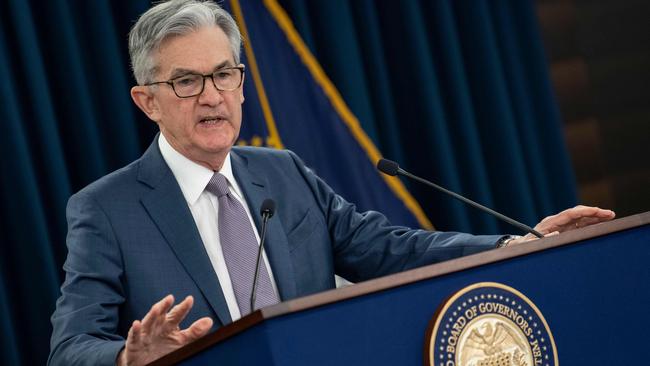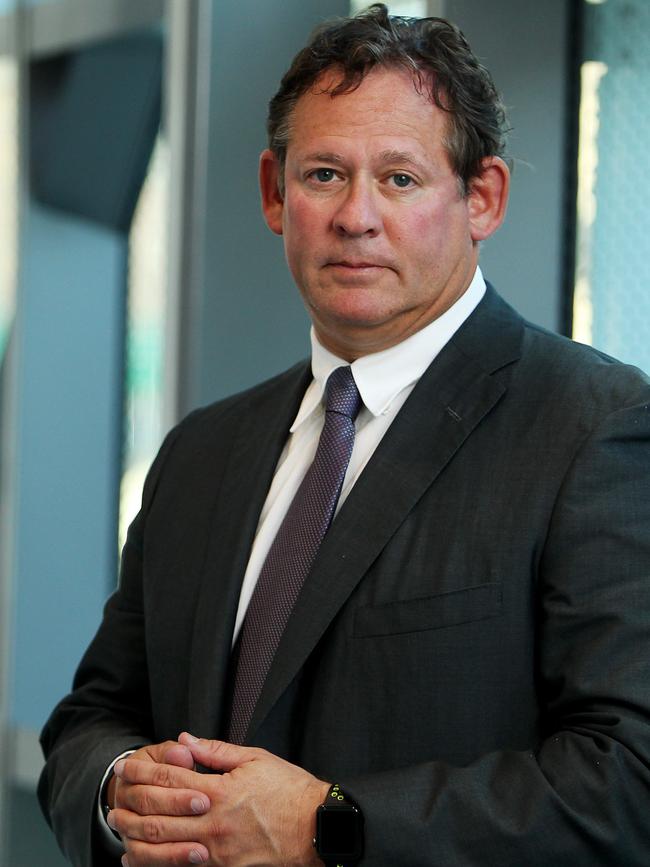
The world’s biggest fund manager has pushed back against the US Federal Reserve’s newly adopted average inflation targeting regime, warning it risks a “bubble” in financial conditions amid “overzealous risk-taking”.
BlackRock’s Rick Rieder, who oversees $US2.4 trillion ($3.29 trillion) as chief investment officer of global fixed income and head of BlackRock’s global asset allocation investment team, said he was “sceptical” about the achievability of this inflation goal at a time when the disinflationary influences of technological innovation and the demographic trend of population ageing arguably hold a greater impact on the rate of inflation than central bank policy does.
“Further, we question whether the endeavour of attempting to press inflation higher is even a good thing for the many lower to middle-income US households, as it could serve as a drag on net disposable income and more to the point on quality of life,” he said. “Essentially, excessive inflation is a regressive tax on spending power.”
Rieder’s statement was distributed via email to US clients at 5.34am on Thursday AEST and throughout the Asia-Pacific region at 11.30am.
It may have contributed to a rise in the US dollar against most currencies including the Australian dollar, and gold, while sparking risk aversion in equities and commodities after the Federal Open Market Committee meeting. Spot gold fell 1.1 per cent to a three-day low of $US1937.87 an ounce, the euro fell 0.7 per cent to a five-week low of $US1.1738, the Australian dollar fell 0.6 per cent to a four-day low of US72.56c, S&P 500 futures fell 1.3 per cent and Australia’s S&P/ASX 200 fell 1.2 per cent.

West Texas crude oil futures fell 1.5 per cent to $US39.60 a barrel, London Metal Exchange copper futures dived 1.2 per cent to $US3.02 a pound and Dalian iron ore futures fell 3.1 per cent.
When Fed chair Jerome Powell infamously said in October 2018 that “we’re a long way from neutral” on US interest rates, Rieder simply tweeted “Fed Pause”. A market rout followed and the Fed tightened again in December that year, before dramatically abandoning plans for further rate rises and quantitative tightening in early 2019 and eventually cutting rates from August last year.
This year, BlackRock has been intimately involved in the Fed’s quantitative easing program.
In its statement on Thursday, the Fed said: “The committee seeks to achieve maximum employment and inflation at the rate of 2 per cent over the longer run.
“With inflation running persistently below this longer-run goal, the committee will aim to achieve inflation moderately above 2 per cent for some time so that inflation averages 2 per cent over time and longer-term inflation expectations remain well anchored at 2 per cent.
“The committee expects to maintain an accommodative stance of monetary policy until these outcomes are achieved.
“The committee (FOMC) decided to keep the target range for the federal funds rate at 0-0.25 per cent and expects it will be appropriate to maintain this target range until labour market conditions have reached levels consistent with the committee’s assessments of maximum employment and inflation has risen to 2 per cent and is on track to moderately exceed 2 per cent for some time.”
Rieder questioned how inflation could “ever stay persistently above 2 per cent”.
With technology “relentlessly pressing down on prices” through efficiency gains on the producer side, and unprecedented information symmetry and price transparency on the consumer side, Rieder said it was “hard to imagine” consumer prices rising materially due to supply/demand dynamics.
Sectors like healthcare, transportation, energy and food were “only just starting” to see the same kind of technological penetration that has challenged consumer goods producers’ pricing power for decades in areas such as televisions or apparel, for example.
Besides technology, structural headwinds to inflation include a global demographic slowdown, globalisation’s role in flattening cost curves, and the advent of US shale capping energy prices. “None of these structural deflationary forces are likely to disappear anytime soon,” Rieder said.
He also questioned whether consistently meeting the 2 per cent inflation target “would even be a good thing” for US households and suggested savings from smaller price increases on household items would “far outweigh” any disappointment from missing the 2 per cent inflation target.
Rieder said the Fed faced two choices in the period ahead. It could either “keep monetary policy easy for years in hopes of hitting its elusive 2 per cent inflation target, while risking a bubble in financial conditions as equities outpace the economy and depressed bond yields feed overzealous risk-taking, or it can seek to normalise policy alongside of eventual labour market healing”.
Central banks should “redefine their mandate around maximising growth and employment, while also keeping financial conditions on the rails. Once growth and employment momentum show enough progress, tying policy to an inflation goal that may never be … reached could result in unnecessary stimulus policies that last for far too long.”






